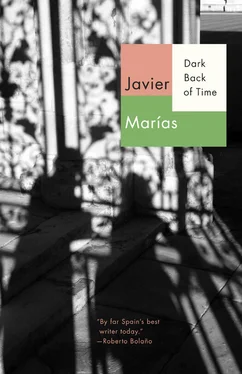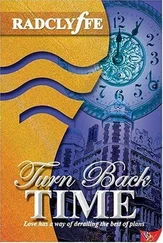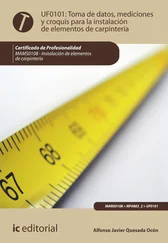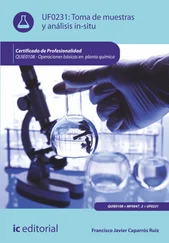BOLETÍN
“ROMANTICISM, REALISM AND THE PRESENCE OF THE WORD,” MEDIA, CONSCIOUSNESS AND CULTURE. ED. BRUCE GRONBECK ET AL. NEW YORK: SAGE. (VERSIÓN COMPLETA “FORTUNATA Y JACINTA, MADAME BOVARY AND ORAL TRACE,” LETRAS PENINSULARES.
“ON MONSTROUS BIRTH: LEOPOLDO ALAS AND THE INCHOATE,” NATURALISM IN THE EUROPEAN NOVEL. ED. BRIAN NELSON. OXFORD: BERG, 1991.
LINDA M. WILLEM
“A DICKENSIAN INTERLUDE IN GALDÓS’S ROSALÍA,” BULLETIN OF HISPANIC STUDIES.
“THE NARRATIVE PREMISE OF GALDÓS’S LO PROHIBIDO,” ROMANCE QUARTERLY, 38 (1991).
“THE NARRATIVE VOICE PRESENTATION OF ROSALÍA DE BRINGAS IN TWO GALDOSIAN NOVELS,” CRÍTICA HISPÁNICA, 12 (1990).
[6] OTRAS NOTICIAS
STELLA MORENO (CENTRAL WASHINGTON UNIVERSITY) PREPARA ACTUALMENTE SU DISERTACIÓN DOCTORAL SOBRE EL TENA “LOVE, MARRIAGE AND DESIRE IN THE NOVELAS CONTEMPORÁNEAS OF GALDÓS.”
A DIANE UREY (ILLINOIS STATE UNIVERSITY) LE HA SIDO OTORGADA UNA N.E.H. FELLOWSHIP PARA QUE PREPARE UN LIBRO SOBRE LOS PRIMEROS EPISODIOS NACIONALES.
[7] NECROLOGÍA
BRI[UNCLEAR] SOUTHWORTH ST. PETR’S COLLEGE, ORFOED UNIVERSITY.
RICARDO GULLÓN, MADRID.
[8] PRÓXIMO NÚMERO DEL BOLETÍN DE LA AIG
SE INCLUIRÁN EN ÉL:
A) COMUNICACIONES SOBRE LAS ENTIDADES Y PUBLICACIONES SIGUIENTES:
LA ASOCIACIÓN CULTURAL BENITO PÉREZ GALDÓS. (JOHN W. KRONIK)
EL CENTRO DE INVESTIGACIÓN “PÉREZ GALDÓS” DE LA FACULTAD DE CIENCIAS DE LA INFORMACIÓN, UNIVERSIDAD COMPLUTENSE, MADRID. (M[UNCLEAR] DEL PILAR PALOMO Y JULIÁN AVILA ARRELLANO)
EL OMNIBUS GALDOSIANO. (PEDRO ORTIX ARMENGOL)
EL CRUPO DE AMIGOS DE GALDÓS. (PEDRO ORTIX ARMENGOL)
“GALDÓS EN MADRID, MADRID EN GALDÓS.” (JULIO RODRÍGUEX PUÉRTOLAS)
B) RESÚMENES DEL CONTENIDO DE LAS ACTAS SIGUIENTES:
ACTAS DEL TERCER CONGRESO INTERNACIONAL DE ESTUDIOS GALDOSIANOS. LAS PALMAS: CABILDO INSULAR DE GRAN CANARIA, 1989. I, 316; II, 569.
GALDÓS, CENTENARIO DE ‘FORTUNATA Y JACINTA’ (1887–1987). ACTAS (CONGRESO INTERNACIONAL, 23–28 DE NOVIEMBRE). MADRID: UNIVERSIDAD COMPLUTENSE, 1989. PP. 669.
GALDÓS, EN EL CENTENARIO DE ‘FORTUNATA Y JACINTA’. ED. JULIO RODRÍGUER PUÉRTOLAS. PALMA DE MALLORCA: PRENSA UNIVERSITARIA, 1989. PP. 110.
I imagine that, his nonchalance notwithstanding, Eric must at least have crossed his fingers as I’ve seen him do many times, however much of a Londoner he may be, and of course I crossed mine, just in case, knocked on various types of wood, and got all tangled up in a string of garlic — I can never remember what exactly it’s for or how you’re supposed to put it on or use it or what you’re supposed to pass through it — and though it wasn’t exactly relevant nor was I having lunch when I read the letter, I threw salt over the shoulders of my polo shirt which for no apparent reason shrank like mad at the next washing. Perhaps all of it was not in vain, however ignorant and clumsy I was in the execution of my false superstitions. Eric Southworth is still alive (though his friend Hemingway, who called him six years ago to make sure of that fact, is not) and his health is as good as can be expected in someone who works a great deal and does not give up the more pleasurable of his minor vices. Still, in the years since this happened, every time he has travelled abroad he’s met with some mishap or accident. He fainted in Orly airport, apparently as a result of a very bad case of food poisoning contracted at a lunch given by the director of the Paris branch of the Instituto Cervantes, and once home in Oxford he had to keep to his bed for far too many alarming days; at Madrid’s Barajas airport he missed a plane to Santiago de Compostela (the airport’s fault) and, unable to go back to the house where he’d been staying — he’d already returned the keys — he had to drag his suitcases loaded with books around Madrid for an entire day since there was no luggage check where he could leave them (our airport, warm and obliging as ever), placing a severe strain on his back, the consequences of which afflicted him to such an extent that he had to cancel part of a planned car trip through Galicia; later, crossing the southern United States, also by car, he and his travelling companion Nick Clapton fell, for twelve hours, into the hands of an absurd sect hidden away in a valley or on a mountain near Tuscaloosa, Alabama, who called themselves God’s Trappers, and all, regardless of gender, wore anachronistic coonskin caps complete with fake tails, like Davy Crockett and Daniel Boone; needless to say, these cultists went hunting for the Englishmen and trapped them, but fortunately they were neither violent nor particularly tenacious, and let them go as soon as they saw they couldn’t convert them, though they could just as easily have sacrificed the two like a pair of beavers to their trapper deity. Then, in Tuscany, Eric fell down an embankment one insufficiently starry night and received multiple fractures that confined him for weeks to an open ward in an Italian hospital, like the other Hemingway, who wrote A Farewell to Arms . According to his doctors, with a little less luck and from a different spot this fall could have sent him straight to Purgatory ( subito, addirittura , they scared him in Italian), and one of his ears was permanently damaged by the impact.
Superstitious or not, in the end I don’t believe that all this is nearly enough to counteract the curse of the Galdosistas, who, evidently, are every bit as international as their Boletín . And though I’ve watched Eric emerge more or less intact from these tribulations and think he’s out of danger now, if not invulnerable or immortal, I beg him at every opportunity to cultivate a greater knowledge of his own country and do his best to leave Great Britain as infrequently as possible. But he’s an inveterate traveller and pays me no heed. As far as the “citation count” goes, it’s a pity I’m no longer a professor of anything, not even a phony professor (I never really was a professor, not in spirit; if it was up to me I never gave exams and I never walked the halls with students flocking around me), for in that case the many mentions I’m making and will go on making of Eric in this book would surely place him, deservedly and to my great joy, in the highest ranks of the wholly unscrupulous and increasingly idiotic university hierarchy.
Antiquarian or used bookstores abound in Oxford; few places are better suited to their proliferation and prosperity than this immobile city where half of those who die possess magnificent libraries and very often lack heirs, all those unmarried men and women, but still primarily men, who spend their borrowed days surrounded by books, with no care whatsoever for what might come or happen after them — truly it doesn’t concern them — when their students, now grown up or old, never look back from their scattered remoteness; no one remembers them and everything goes back to the way it was, as if they had never been born. At those bookstores I have bought copies of books that once belonged to eminent figures in various fields, their pages sometimes bearing the inky trace of an homage, commentary, or difference of opinion with the text those men ran their eyes over so many years ago, when it was apparent that they had been born and were walking through the same streets that now offer not the least evidence of their hurried daily passage, no doubt wearing cap and gown and with these books in their briefcases, no doubt meeting with respect and cheerful greetings from those whose paths they crossed during the time that was lost as soon as it transpired, or was already lost when it was still present and transpiring.
Alfred Leslie Rowse, who devoted himself to Shakespeare without attaining great prestige, made some notes in the margins of a little known and very weighty tome by Henry James, William Wetmore Story and His Friends , which few other people can possibly have read; the marvelous Hellenist Gilbert Murray, “Regius Professor of Greek at Oxford University” (the regal Professor Murray), corrected with his own hand the typographical errors in one of his best works, Five Stages of Greek Religion; the novelist Angus Wilson gave one of his novels to the filmmaker George Cukor, perhaps while Cukor was shooting My Fair Lady , “in the copy of my friend George Cukor,” was what he rapidly scrawled; and someone who had been in Spain and may have been at the front, brought back to Oxford the first edition of the book of poems and photographs by Miguel Hernández titled Viento del pueblo ( Wind of the People ), which was banned and is almost nonexistent ( “Este libro se acabó de imprimir en Valencia en la Litografía Durá en septiembre de 1937”; “This book was printed in Valencia by Durá Lithographers in September of 1937”; the publisher was Ediciones “Socorro Rojo” or “Red Aid” Editions). Almost all copies of it were destroyed by la mano dura de piedra , the stone-hard hand; I understand that only six are known to exist in the entire world, making mine the seventh, and all of them begin with the same line, “ Atraviesa la muerte con herrumbrosas lanzas …” (“Death passes through with rusting lances …”), and all of them contain the other seven good ones of the “First Elegy” which I’ll paraphrase here; and another, more revered, Shakespeare expert, John Dover Wilson, must have mailed off a copy of his Fortunes of Falstaff from Edinburgh, for I have it in my hand right now and in its day it was addressed to one Arthur Melville Clark of Herriotshall and Oxton, according to his ex libris , which no one has removed over the course of the volume’s unknown journeyings and I won’t be the one to do so, his motto is “Blaw for Blaw,” a northern or Scottish way of saying something every language knows and sometimes applies, “Blow for blow,” I know it, too, and my father knew it even better, and Miguel Hernández best of all (“… y llueve sal, y esparce calaveras ,” “… and rains salt, and scatters skulls”), the blows he was dealt were not metaphorical, nor were the jails, and those his lines could deliver were only verbal (“ El sol pudre la sangre, la cubre de asechanzas y hace brotar la sombra más sombría ,” “The sun rots the blood, covers it in snares and makes somberest shadow flow”); and the poet John Gawsworth gave a copy of his Collected Poems to another poet, the Scotsman George Sutherland Fraser, on June 29, 1949, still a desolate day in what would become my home once I was born, inscribing on a flyleaf, “For George, almost the most traitorous and undoubtedly the dearest of my Dukes, Neruda,” which was the extravagant title the king of Redonda bestowed that year in Cairo on his friend and former comrade-in-arms, the useless Sergeant Major Fraser, thus making him a member of the “intellectual aristocracy” of his both real and fantastical kingdom, with and without territory, another literary island, one, however, that can be located and does figure on certain maps, minuscule and upright and uninhabited, but not on others.
Читать дальше












